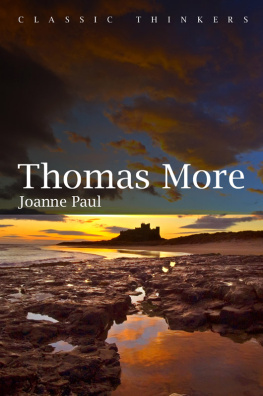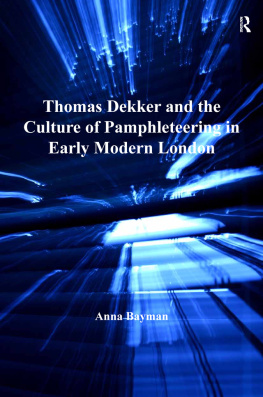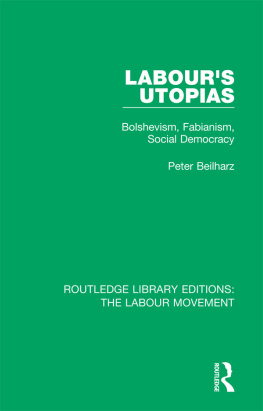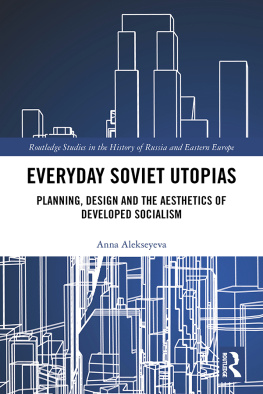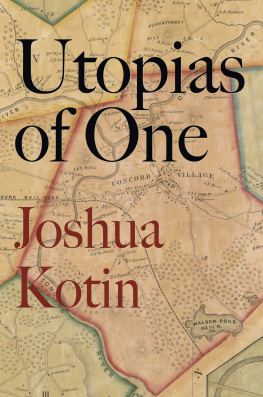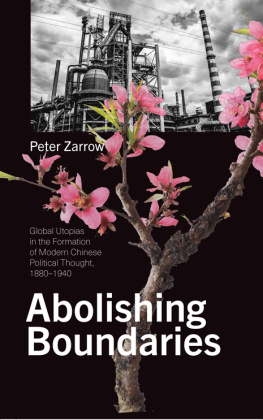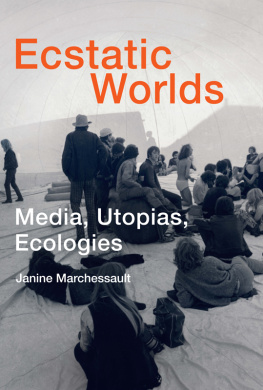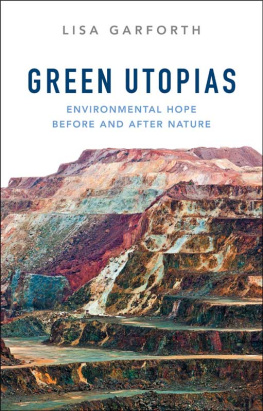More Thomas - Three Early Modern Utopias
Here you can read online More Thomas - Three Early Modern Utopias full text of the book (entire story) in english for free. Download pdf and epub, get meaning, cover and reviews about this ebook. City: UK, year: 1999, publisher: Oxford University Press, genre: Religion. Description of the work, (preface) as well as reviews are available. Best literature library LitArk.com created for fans of good reading and offers a wide selection of genres:
Romance novel
Science fiction
Adventure
Detective
Science
History
Home and family
Prose
Art
Politics
Computer
Non-fiction
Religion
Business
Children
Humor
Choose a favorite category and find really read worthwhile books. Enjoy immersion in the world of imagination, feel the emotions of the characters or learn something new for yourself, make an fascinating discovery.

- Book:Three Early Modern Utopias
- Author:
- Publisher:Oxford University Press
- Genre:
- Year:1999
- City:UK
- Rating:4 / 5
- Favourites:Add to favourites
- Your mark:
- 80
- 1
- 2
- 3
- 4
- 5
Three Early Modern Utopias: summary, description and annotation
We offer to read an annotation, description, summary or preface (depends on what the author of the book "Three Early Modern Utopias" wrote himself). If you haven't found the necessary information about the book — write in the comments, we will try to find it.
Three Early Modern Utopias — read online for free the complete book (whole text) full work
Below is the text of the book, divided by pages. System saving the place of the last page read, allows you to conveniently read the book "Three Early Modern Utopias" online for free, without having to search again every time where you left off. Put a bookmark, and you can go to the page where you finished reading at any time.
Font size:
Interval:
Bookmark:
OXFORD WORLDS CLASSICS
UTOPIAS have existed almost since the beginnings of literature, but some eras have produced more utopian literature than others. The early modern period was one such time. The geographical and scientific discoveries of the age, as well as its profound social conflicts, provided a context in which the fusion of ideas about the ideal with representations of other fictitious communities became a natural mode of conceiving how things might be different in a world elsewhere. But early modern utopias rarely offered simple solutions to the problems that they confronted. Their writers frequently offered representations of other worlds not in order to answer questions about the social, cultural, and political mores of their own times, but rather to raise the issues in their readers minds. In other words very few early modern utopias are merely blueprints for ideal societies: their meanings emerge only through the juxtaposition of the utopia represented with the writers own world. In different ways this is true of all three of the utopias reprinted in this volume: Thomas Mores Utopia (1516), which addresses the social problems of early sixteenth-century England; Francis Bacons New Atlantis (1627), which foregrounds Englands shortcomings in the nurture of scientific endeavour; and Henry Nevilles The Isle of Pines (1668), which engages with issues of colonialism and sexual propriety. These three texts illustrate the range of the utopian imagination in the early modern period, and the different uses to which it could be put.
SUSAN BRUCE is Lecturer in the English Department of Keele University. She is the author of articles on More, Bacon, Rochester, and Swift, and the editor of The Icon Critical Guide to King Lear.
OXFORD WORLDS CLASSICS
For over 100 years Oxford Worlds Classics have brought readers closer to the worlds great literature. Now with over 700 titlesfrom the 4,000-year-old myths of Mesopotamia to the twentieth centurys greatest novelsthe series makes available lesser-known as well as celebrated writing.
The pocket-sized hardbacks of the early years contained introductions by Virginia Woolf, T. S. Eliot, Graham Greene, and other literary figures which enriched the experience of reading. Today the series is recognized for its fine scholarship and reliability in texts that span world literature, drama and poetry, religion, philosophy, and politics. Each edition includes perceptive commentary and essential background information to meet the changing needs of readers.
Refer to the to navigate through the material in this Oxford Worlds Classics ebook. Use the asterisks (*) throughout the text to access the hyperlinked Explanatory Notes.
THE WORLDS CLASSICS

THOMAS MORE
FRANCIS BACON New Atlantis
HENRY NEVILLE The Isle of Pines

Edited with an Introduction and Notes by
SUSAN BRUCE


Great Clarendon Street, Oxford OX2 6DP
Oxford University Press is a department of the University of Oxford.
It furthers the Universitys objective of excellence in research, scholarship.
and education by publishing worldwide in
Oxford New York
Athens Auckland Bangkok Bogot Buenos Aires Calcutta
Cape Town Chennai Dar es Salaam Delhi Florence Hong Kong Istanbul
Karachi Kuala Lumpur Madrid Melbourne Mexico City Mumbai
Nairobi Paris So Paulo Singapore Taipei Tokyo Toronto Warsaw
with associated companies in Berlin Ibadan
Oxford is a registered trade mark of Oxford University Press
in the UK and in certain other countries
Published in the United States
by Oxford University Press Inc., New York
Introduction, Note on the Texts, Select Bibliographies, Chronologies Susan Bruce 1999
Chronology of Francis Bacon Brian Vickers 1996
The moral rights of the author have been asserted
Database right Oxford University Press (maker)
First published as an Oxford Worlds Classics paperback 1999
All rights reserved. No part of this publication may be reproduced, stored in a retrieval system, or transmitted, in any form or by any means, without the prior permission in writing of Oxford University Press, or as expressly permitted by law, or under terms agreed with the appropriate reprographics rights organizations. Enquiries concerning reproduction outside the scope of the above should be sent to the Rights Department, Oxford University Press, at the address above
You must not circulate this book in any other binding or cover
and you must impose the same condition on any acquirer
British Library Cataloguing in Publication Data
Data available
Library of Congress Cataloging in Publication Data
Data available
ISBN 0192838857
3 5 7 9 10 8 6 4 2
Typeset by RefineCatch Limited, Bungay, Suffolk
Printed in Great Britain by
Cox & Wyman Ltd., Reading
THOMAS MORE, UTOPIA
translated by Ralph Robinson
Like other editors, I have consulted other editions of the texts in producing my own. I am especially indebted to J. H. Luptons and to J. Churton Collinss editions of Utopia, to J. Weinbergers and Brian Vickerss editions of New Atlantis and to Worthington Chauncey Fords edition of The Isle of Pines for the Club of Odd Volumes. Many individuals have assisted more directly in the production of this volume, and to all of them I am very grateful. Neil Rhodes encouraged me, some years ago now, to propose the anthology to Oxford Worlds Classics. John Rogers assisted me with one of the explanatory notes to Utopian attitudes to the more obscure aspects of medieval philosophy. Dima Abdulrahim helped me on those occasions where expertise in Arabic was required; Marguerite Palmer helped me to ascertain the meaning of a Dutch sentence. Sue Wiseman was kind enough to help me to track down early versions of Nevilles pamphlets; Mishtooni Bose helped me to find a translation of a letter. Tim Lustig has been supportive in many different ways throughout the time I have been working on this anthology, as have Daniel and Luke Lustig-Bruce, in their inimitable and much appreciated fashions. Both Sue and Tim also read and commented on my introduction to The Isle Of Pines, as did Roger Pooley and Julie Sanders; Bridget Orr was kind enough to listen to some early ideas. I should also like to thank Judith Luna of Oxford University Press for her efficiency and helpfulness, the copy-editor, Jeff New, for his careful reading of the typescript, and for his excellent suggestions for improvements, some of which I have incorporated in the notes on the texts, and Brian Vickers, editor of the Oxford Authors Francis Bacon, for allowing me to base the text of the New Atlantis, and the chronology of Francis Bacon, on his edition. Perhaps my greatest debt of gratitude is due to Alison Sharrock of the Classics Department of Keele University, who extended her time (with extraordinary generosity) in helping me with classical allusions in the
Next pageFont size:
Interval:
Bookmark:
Similar books «Three Early Modern Utopias»
Look at similar books to Three Early Modern Utopias. We have selected literature similar in name and meaning in the hope of providing readers with more options to find new, interesting, not yet read works.
Discussion, reviews of the book Three Early Modern Utopias and just readers' own opinions. Leave your comments, write what you think about the work, its meaning or the main characters. Specify what exactly you liked and what you didn't like, and why you think so.


